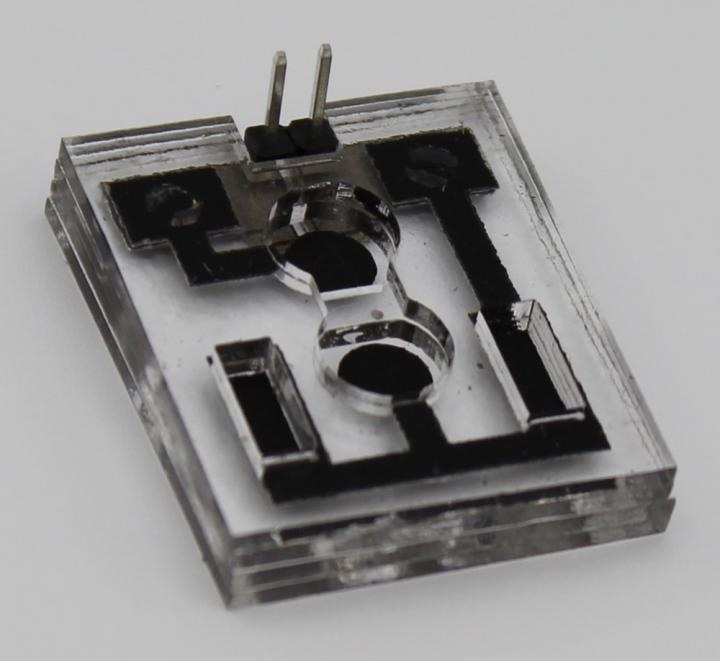Jun 6 2019
Small plastic and paper devices will be able to link to the internet for a brief duration in the future, offering information on everything from consumer products to healthcare, before they are discarded. Scientists at Binghamton University, State University of New York have built a micro biobattery that could drive these disposable sensors.
 This solid phase bacteria-powered biobattery could be a low-cost power source for the Internet of Disposable Things. (Image credit - Sean Choi)
This solid phase bacteria-powered biobattery could be a low-cost power source for the Internet of Disposable Things. (Image credit - Sean Choi)
The Internet of Disposable Things is a phenomenon wherein wireless sensors are attached to virtually any type of device so as to provide current information through the internet. For instance, a sensor could be attached to food packaging to keep track of the freshness of the food inside.
Internet of Disposable Things (IoDT) is a new paradigm for the rapid evolution of wireless sensor networks. This novel technique, constructed in a small, compact, disposable package at a low price point, can connect things inexpensively to function for only a programmed period and then be readily thrown away.
Seokheun Choi, Associate Professor of Electrical and Computer Engineering, Binghamton University
The drawbacks of Choi's earlier small-size microbial fuel cells were low power density and energy-intensive fluidic feeding operation; therefore, he visualized that a small-power, disposable, solid-state battery-type microbial fuel cell system without the fluidic platform would be more appropriate and possibly achievable.
Previously, my group had two directions: 1) disposable paper-based biobatteries for single-use low-power systems (for example, biosensors) and 2) long-term microbial fuel cells for sustainable applications. The biobattery we developed this time was a kind of combined technique of those two; the power duration was significantly enhanced by using solid-state compartments but the device is a form of a battery without complicated energy-intensive fluidic feeding systems that typical microbial fuel cells require.
Seokheun Choi, Associate Professor of Electrical and Computer Engineering, Binghamton University
"Current IoDTs are mostly powered by expensive and environmentally-hazardous batteries, thus, ultimately leading to significant cost increases and environmental issues for their large-scale deployment," added Choi. "Our biobattery is low-cost, disposable and environmentally-friendly."
Currently, Choi is attempting to incorporate serially connected biobatteries with a DC-DC converter.